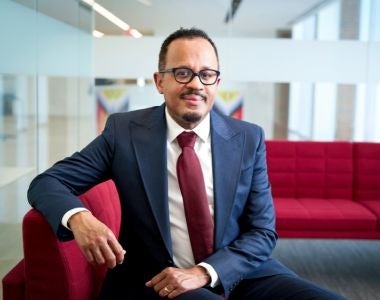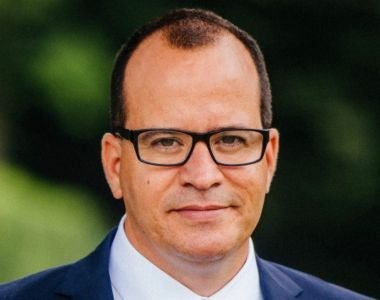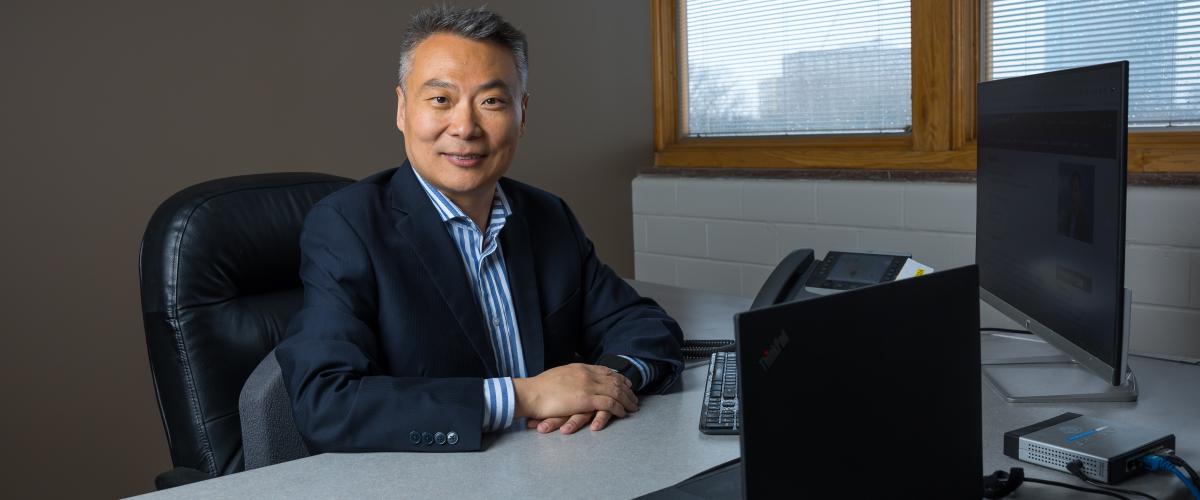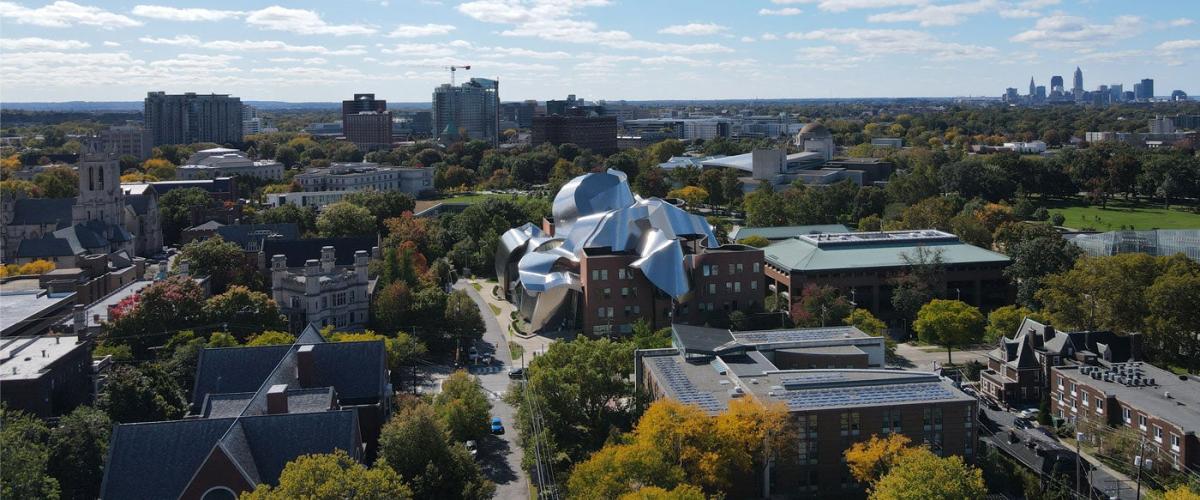From teaching in the Department of Physics to leading the Jack, Joseph and Morton Mandel School of Applied Social Sciences, those of Caribbean American heritage are engaged with countless facets of Case Western Reserve University.
In recognition of Caribbean American Heritage Month, which takes place annually in June, The Daily is celebrating the accomplishments and experiences of two Caribbean American members of the CWRU community. Discover more about their experiences at the university—and learn how their heritage has impacted their lives.
Answers have been lightly edited for clarity and length.

Dexter Voisin
Jack, Joseph and Morton Mandel Dean in Applied Social Sciences
Q: Why are you passionate about your role at CWRU? Do you share your culture with any of your colleagues or students?
Voisin: As dean at the Jack, Joseph and Morton Mandel School of Applied Social Sciences, I have the fantastic opportunity to work with outstanding staff, students, faculty, alums, and friends to advance the school's mission to promote a more inclusive society. I also get to work with incredible decanal colleagues to advance the primary agenda of the president—advance research, elevate teaching, and elevate meaningful community engagement. These priorities align with who I am as a social work clinician, educator, researcher, and administrator.
My culture is a part of me and embedded within my DNA, my skin, and the essence of who I am as a person. It is more than what I put on or pull out at various times. It is manifested not only in the words I speak but also in the cadence of my voice, the way I walk and dress, and the values and lessons that guide me daily as I navigate this exciting journey that we call life.
Often, folks hear the cadence in my speech and ask where I am from. I am delighted to share that although I have lived most of my life in the United States, I was born and raised in Trinidad and Tobago until I migrated to this country to attend college.
Q: What has your career path looked like so far?
Voisin: Well, that all depends on what chapters you are referring to in my life. After completing my Advanced Levels in Trinidad (the equivalent of community college), I worked as a banker and with airlines. After college, I worked as a social work case manager in child welfare. After earning my master's in social work, I did medical and psychiatric social work, was the manager at a recovery residence, and had a private practice. After I earned a PhD in social work, I became a faculty member for two decades at the University of Chicago and have been a dean for the past five years at the University of Toronto and now at CWRU. It is a career that is still unfolding.
Q: What do you think the campus community should know about Caribbean American Heritage Month or your heritage in general?
Voisin: Caribbean Americans are a wonderfully diverse group with multiple layers. We are not a monolith; we all have different and exciting stories to tell. Take time to learn the individual stores. As fellow human beings, we all have layered stories.
Q: Why do you believe it's important to celebrate Caribbean American Heritage Month?
Voisin: It is important to celebrate all the various cultures that make up this wonderfully complex tapestry we call humanity. We all happen to be born in different world locations and affix these artificial labels called nationality, but we are all linked together by our universal humanity.
Q: Where is your family from? Where did you grow up?
Voisin: I was born and grew up in Trinidad and Tobago until I moved to the United States to attend college. My parents were born in Trinidad, and my maternal and paternal lineages were from Venezuela and Martinique, respectively. Growing up in the most culturally and racially diverse English-speaking country in the West Indies has given me an appreciation and life lesson in humanity.

Pavel Fileviez Perez
Associate professor of physics
Q: Why are you passionate about your role at CWRU? Do you share your culture with any of your colleagues or students?
Fileviez Perez: As a professor of physics I love to teach and supervise students in my research field which is particle physics and cosmology. I often share my personal experiences growing up in Cuba with my colleagues and students.
Q: What has your career path looked like so far?
Fileviez Perez: I studied in Cuba, Italy and Germany, and worked at UW-Madison, NYU and Caltech. Since 2016 I have been working as a professor in the physics department at CWRU.
Q: What do you think the campus community should know about Caribbean American Heritage Month or your heritage in general?
Fileviez Perez: The campus community should know about the contributions of Caribbean people to the United States. Caribbean culture is a very rich fusion of people from Europe, Africa and Asia.
Q: Where is your family from? Where did you grow up?
Fileviez Perez: My family is from Cuba, Poland, Spain, Germany and Ukraine. I did grow up in Cuba.
This article was originally published June 26, 2024.



